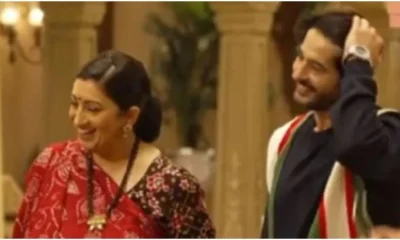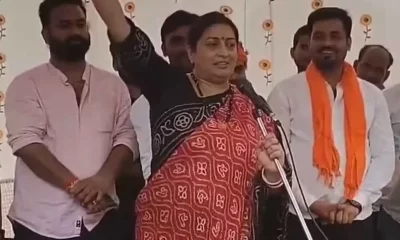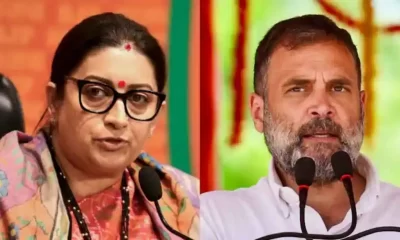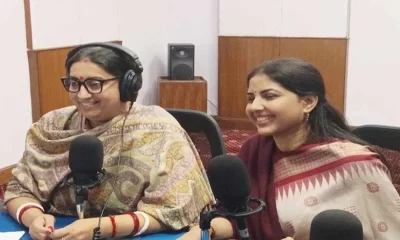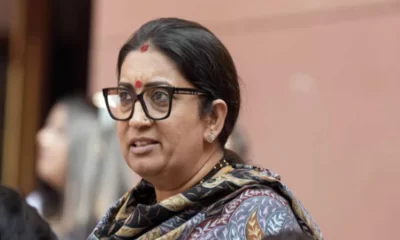The government will establish a committee of senior judicial and legal persons to examine the flood of sexual harassment complaints as the #MeToo movement picked up in India.
Union Minister for Women and Child Development Maneka Gandhi said on Friday, October 12, that the committee will include four retired judges and a ”strong lawyer as an amicus” and will “conduct independent hearings”.
The committee will look into the “legal & institutional framework which is in place for handling complaints” of sexual harassment at work, including some of the complaints if required, and “advise” the WCD ministry “on how to strengthen these frameworks,” said the WCD Ministry in a tweet.
The move comes in the midst of a surge of instances of more and more women going public with their experiences of sexual harassment at the hands of filmmakers, journalists, corporate bosses and, among others, Minister of State for External Affairs MJ Akbar.
Chairperson of the Delhi Commission for Women Swati Maliwal wrote a letter to the Prime Minister, demanding MoS MJ Akbar’s resignation after several women came out accusing him of sexual harassment, and even molestation, when he was an editor, stating that “such person must not remain on important position”.
Maliwal said that Akbar “must be expelled from the government immediately and investigation should be conducted” and urged the Prime Minister to “make an inquiry committee to deal with all complaints related to #MeToo campaign so that justice can be delivered to aggrieved women”.
Some are of the view that the government’s move is to control damage. Lawyer and women’s rights activist Vrinda Grover was reported as saying that “If the government is serious, first let them ask the minister of state MJ Akbar to step down.”
“We also know that committees of this kind are often constituted so that the government can control and channelize the conversation, which clearly is now challenging very powerful men,” she said.
Maneka Gandhi said in a tweet: “I believe in the pain and trauma behind every single complaint. Cases of #sexualharassmentatwork must be dealt with a policy of zero tolerance.”
In an interview to Doordarshan News, Gandhi said that “for many years” there was a burden on women, that even if they were “humiliated” verbally or by touch, “the woman never used to speak up, even if she was 80 years old”. But now, they have “found the strength”.
The committee, she said, will include four retired judges and a ”strong lawyer as an amicus” and will “conduct independent hearings”.
The public hearings will not be for individual complaints, but where stakeholders can come and depose before the committee if they wish to, a process similar to the one followed by the Justice Verma Committee that was set up to reform the laws against rape after the December 16, 2012 gangrape incident that jolted the nation and led to a public outcry over women safety.
In another statement issued Friday, Gandhi said that she wants workplaces to be made “more conducive to women employees”, Internal Complaints Committees (ICC) to be set up, as required by law, “more functional trustworthy systems to be put in place” and compliance reported in the public domain. She said that investigation into the complaints should be carried out “swiftly in a free and fair manner”.
Her ministry, she said, follows a “zero tolerance policy” towards sexual harassment of women at work places. The institutional framework as per the Sexual Harassment of Women at workplace (Prevention, Prohibition and Redressal) Act of 2013 has been put in place, she said, “to ensure harassment-free workplaces covering all women” of all ages, whether in full-time and part-time, public and private sector, organised or unorganised sectors and includes domestic workers, students, apprentices and even women visiting offices.
Apart from the ICC, she said, additional mechanisms, like a dedicated ‘She-Box” portal can be put in place which can be used by women to report grievances. Women can also write to her Ministry or tweet to it using #HelpMeWCD hashtag, and it will take it up with the authorities concerned, she said.
She urged women from all sectors to “come out fearlessly and report cases of any form of sexual harassment” and said, “we shall ensure all possible assistance”.
On Thursday, Union Minister for Textiles Smriti Irani had joined the voices against sexual harassment and said that women are taking a “big risk” by speaking out and should not be judged. On the allegations against Akbar, Irani said it is for the “gentleman himself” to respond.
She said, “do not judge those who are speaking out right now. They are mothers, daughters and wives. They are taking a big risk and it must be very difficult for them to speak out”. She said women do not go to work “to be pawed, you do not come to work to be flirted with, you do not come to work to adjust”. Women, she said go to work to make a living and “live a dream”.


 India News20 hours ago
India News20 hours ago
 Cricket news19 hours ago
Cricket news19 hours ago
 India News18 hours ago
India News18 hours ago
 Latest world news6 hours ago
Latest world news6 hours ago
 Latest world news6 hours ago
Latest world news6 hours ago
 Latest world news6 hours ago
Latest world news6 hours ago
 India News6 hours ago
India News6 hours ago
